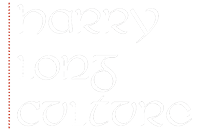
Early on the morning of Tuesday, 26th October, 2021, the band Coscán gathered in the darkness at Slane Castle, Co. Meath. Famous as a venue for big concerts since 1981, the castle is currently hosting events in The Púca Festival, a celebration of Halloween that is taking place at various venues in counties Meath and Louth. Coscán will be playing as part of the festival at Slane Castle on Sunday 31st October, Halloween Night. We were there on Tuesday morning to take part in Virgin One’s Ireland AM programme, which was featuring events in the Púca Festival.
The festival celebrates Ireland as the home of Halloween. While many people might associate Halloween with American movies and customs, there is a far older custom of celebrating Halloween, and before that the ancient festival of Samhain, in Ireland. Irish mythology, medieval literature, folklore, archaeology and history are full of evidence that relates to the festivals of Samhain and Halloween. In early Irish literature, the festival of Samhain marked summer’s end and the beginning of the dark half of the year. Many Irish myths and legends are centred around events that take place at Samhain, when the boundaries between this world and the otherworld were believed to disappear. The harvest was in, and people celebrated with feasting, storytelling, music and dance. Major festivals involving bonfires took place at ancient sites like Tara and Tlachtga (The Hill of Ward), both in Co. Meath. In the same county, Newgrange and one of the passage tombs at Loughcrew also had associations with Samhain, as did sites in other parts of the country, like Crúachu in Co. Roscommon. Early Irish law (or Brehon law) shows that this was also an important time of the year in farming.
The Samhain festival took place around the end of October and over a thousand years ago, in Early Medieval times, the Church moved the feast of All Saints or All Hallows to November 1st. So October 31st became the evening before All Hallows or ‘Hallowe’en’. Customs associated with the Samhain festival were practiced at Halloween and, in the 10th century, the Church began to celebrate the feast of All Souls, commemorating the dead, on November 2nd. Ireland shared some customs with other parts of Europe, including Scotland, where the 18th century poet Robbie Burns became one of the first poets to write a poem in English about Halloween. The English singer/songwriter Sting recorded a Halloween song called ‘Soul Cakes’ in 2009 which echoes very old customs also found in Ireland.
The Irish who emmigrated to the US and Canada from the 19th century seem to have brought many of their Halloween customs with them and over time these developed to become the Halloween celebrations that we know today. So the Púca Festival incorporates elements of the modern Halloween with echoes of the centuries old festival of Samhain.
A Púca (sometimes spelt Pooka) was a hobgoblin and in 2005 I composed a tune called ‘The Pooka Polka’ for a collection of whistle tunes published by Walton’s of Dublin. This tune features in the final lesson of the Beginner’s Tin Whistle video course on this website. If you wish, you can learn the tune by ear, but staff notation is also provided.
I am hosting a free Zoom meeting on the Irish origins of Samhain/Halloween on Saturday, 30th October at 6.00 p.m. GMT This is the link for it
https://us02web.zoom.us/meeting/register/tZMldeGsrzopGdOJZG4g9ThBJhFThusd2_3y




